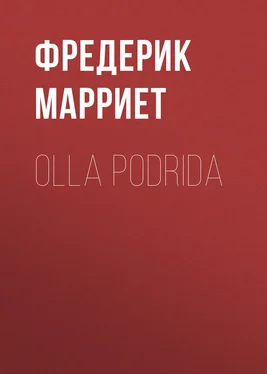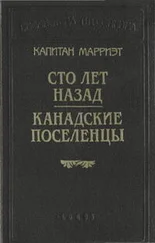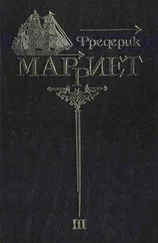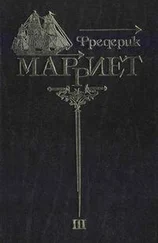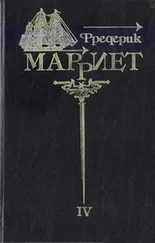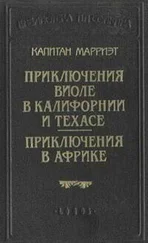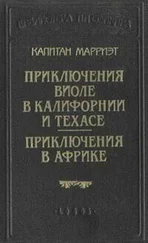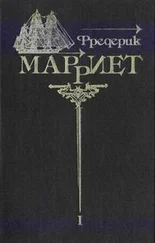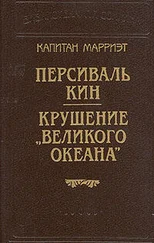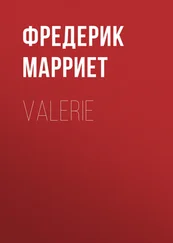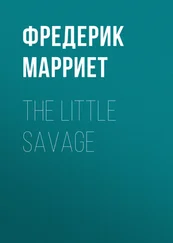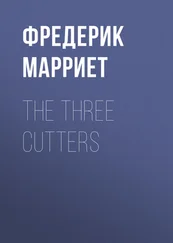Фредерик Марриет - Olla Podrida
Здесь есть возможность читать онлайн «Фредерик Марриет - Olla Podrida» — ознакомительный отрывок электронной книги совершенно бесплатно, а после прочтения отрывка купить полную версию. В некоторых случаях можно слушать аудио, скачать через торрент в формате fb2 и присутствует краткое содержание. Жанр: Путешествия и география, literature_19, foreign_antique, foreign_prose, на английском языке. Описание произведения, (предисловие) а так же отзывы посетителей доступны на портале библиотеки ЛибКат.
- Название:Olla Podrida
- Автор:
- Жанр:
- Год:неизвестен
- ISBN:нет данных
- Рейтинг книги:5 / 5. Голосов: 1
-
Избранное:Добавить в избранное
- Отзывы:
-
Ваша оценка:
- 100
- 1
- 2
- 3
- 4
- 5
Olla Podrida: краткое содержание, описание и аннотация
Предлагаем к чтению аннотацию, описание, краткое содержание или предисловие (зависит от того, что написал сам автор книги «Olla Podrida»). Если вы не нашли необходимую информацию о книге — напишите в комментариях, мы постараемся отыскать её.
Olla Podrida — читать онлайн ознакомительный отрывок
Ниже представлен текст книги, разбитый по страницам. Система сохранения места последней прочитанной страницы, позволяет с удобством читать онлайн бесплатно книгу «Olla Podrida», без необходимости каждый раз заново искать на чём Вы остановились. Поставьте закладку, и сможете в любой момент перейти на страницу, на которой закончили чтение.
Интервал:
Закладка:
At this last “oh, no!” my companion laid his face down upon his knuckles, and was silent. I once more sought the deck, and preferred to encounter the east wind. “Blow, blow, thou wintry wind, thou art not so unkind,” soliloquised I, as I looked over the bows, and perceived that we were close to the pile entrance of the harbour of Ostend. Ten minutes afterwards there was a cessation of paddle, paddle, thump, thump, the stern-fast was thrown on the quay, there was a rush on board of commissionnaires, with their reiterated cries accompanied with cards thrust into your hands, “Hôtel des Bains, Monsieur.” “Hôtel Waterloo, Monsieur.” “Hôtel Bellevue.” “Hôtel Bedford, Monsieur.” “Hôtel d’Angleterre,” ad infinitum —and then there was the pouring out of the Noah’s Ark, with their countenances wearing a most paradoxical appearance, for they evidently showed that they had had, quite enough of water, and, at the same time, that they required a great deal more. I looked at my children, as they were hoisted up from the ladies’ cabin, one after another; and upon examination I decided that, with their smudged faces, the Hôtel des Bains would be the most appropriate to their condition; so there we went.
Chapter Four
Ostend, April 18, 1835.
I was confoundedly taken in by a rascal of a commissionnaire, and aware how the feelings of travellers are affected by the weather or the treatment they receive at any place they may pass through, I shall display the heroism of saying nothing about the place, except that I believe Ostend to be the most rascally hole in the world, and the sooner the traveller is out of it so much the better will it be for his purse and for his temper.
April 19.
It has been assumed as an axiom that every one in this world is fond of power. During our passage in the track-schuyt I had an evidence to the contrary, for as we glided noiselessly and almost imperceptibly along, a lady told me that she infinitely preferred the three-horse power of the schuyt to the hundred-horse power of the steam-packet. We arrived at Bruges, escaping all the horrors and difficulties of steam navigation.
House rent at Bruges is cheap, because one half of the houses are empty—at least that was the cause assigned to me, although I will not vouch for its being the true one. The reader may remember that this was the site of cheap peaches, but none met our sight, the trees not being yet in blossom. I ought to observe, for the satisfaction of the Foreign Bible Society, that at the hotel at Bruges I saw a book of their exportation lying on the chimney-piece in excellent preservation.
April 21.
As to what passed on our canal voyage to Ghent, I can only say that every thing passed us—for the roads were very heavy, the horses very lazy, and the boys still lazier—they rode their horses listlessly, sitting on them sideways, as I have seen lads in the country swinging on a gate—whereby the gait of the track-schuyt could not be styled a swinging pace. We did arrive at last, and thus ended our water carriage. At Ghent we went to the Hôtel Royal, from out of the windows of which I had a fine view of the belfry, surmounted by the Brazen Dragon brought from Constantinople; and as I conjured up times past, and I thought how the belfry was built and how the dragon got there, I found myself at last wandering in the Apocrypha of “Bel and the Dragon.”
We went to see the picture by Van Eck, in the cathedral of Saint Bovin. The reader will probably wish to know who was Saint Bovin—so did I—and I asked the question of the sacristan: the reader shall have the benefit of the answer, “Saint Bovin, monsieur, il était un saint .”
That picture of Van Eck’s is worth a van full of most of the pictures we see: it was Van Eck who invented, and was indeed the father of painting in oil. It is a wonderful production.
Mrs Trollope says that people run through Belgium as if it were a mere railroad to other countries. That is very true—we did the same—for who would stop at Ostend to be swindled, or at Bruges to look at empty houses, or at Ghent, which is nothing but a Flanders Birmingham, when Brussels and King Leopold, and the anticipation of something more agreeable, were only thirty miles off. Not one day was our departure postponed; with post-horses and postilions we posted post haste to Brussels.
Chapter Five
April 22.
The Queen of Belgium “a fait un enfant.” On the Continent it is always the wife who is considered as the faiseuse; the husband is supposed, and very often with justice to have had nothing to do in the matter—it certainly does appear to be optional on the part of the ladies, for they limit their family to their exact wishes or means of support. How different is it in England, where children will be born whether it is convenient or not! O Miss Martineau! you may talk about the “preventive check,” but where is it? In England it would be as valuable as the philosopher’s stone.
I think that the good people of Paris would do well, as they appear just now to have left religion in abeyance, to take up the manners and customs of the empire of the Nahirs, a Mahratta nation, which I once read about. In that country, as in heaven, there is no marrying, nor giving in marriage. All are free, and all inheritance is through the children of the sister; for although it is impossible to know who may be the father of any of the children, they are very certain that the sister’s children must have the blood on the maternal side. What a good arrangement this would be for the Parisians—how many pêchés à mortels would they get rid of—such as adultery, fornication, etcetera,—by passing one simple law of the land. By-the-by, what an admirable idea for reforming a nation—they say that laws, now-a-days, are made to prevent crime: but if laws were enacted by which crime should no longer be considered as crime, what a deal of trouble might be saved.
The theatre is closed owing to the want of funds; the want of funds is owing to the want of honesty on the part of the manager having run away with the strong box, which was decidedly the very best box in the theatre.
April 26.
I went to see a species of Franconi, or Astley’s: there is little variety in these performances, as there are only a certain quantity of feats, which can be performed either by the horses or the riders, nevertheless we had some novelty. We had the very best feminine rider I ever saw; she was a perfect female Centaur, looking part and parcel of the animal upon which she stood; and then we had a regularly Dutch-built lady, who amused us with a tumble off her horse, coming down on the loose saw-dust, in a sitting posture, and making a hole in it as large as if a covey of partridges had been husking in it for the whole day. An American black (there always is a black fellow in these companies, for, as Cooper says, they learn to ride well in America by stealing their masters’ horses) rode furiously well and sprained his ankle—the attempt of a man in extreme pain to smile is very horrible—yet he did grin as he bowed and limped away. After that we had a performer, who had little chance of spraining her ankle: it was a Miss Betsey, a female of good proportions, who was, however, not a little sulky that evening, and very often refused to perform her task, and as for forcing the combined will of a female and an elephant to boot, there was no man rash enough to attempt it, so she did as little as she pleased, and it pleased her to do very little; one feat, however, was novel, she took a musket in her mouth, and fired it off with her trunk.
When I was in India I was very partial to these animals; there was a most splendid elephant, which had been captured by the expedition sent to Martaban; he stood four or five feet higher than elephants usually do, and was a great favourite of his master, the rajah. When this animal was captured there was great difficulty in getting him on board of the transport. A raft was made, and he was very unwillingly persuaded to trust his huge carcass upon it; he was then towed off with about thirty of the natives on the raft, attending him; the largest purchases and blocks were procured to hoist him in, the mainyards doubly secured, and the fall brought to the capstern. The elephant had been properly slung, the capstern was manned, and his huge bulk was lifted in the air, but he had not risen a foot before the ropes gave way, and down he came again on the raft with a heavy surge, a novelty which he did not appear to approve of. A new fall was rove, and they again manned the capstern; this time the tackle held, and up went the gentleman in the air; but he had not forgotten the previous accident, and upon what ground it is impossible to say, he ascribed his treatment to the natives, who were assisting him on the raft. As he slowly mounted in the air, he looked about him very wroth, his eyes and his trunk being the only portions of his frame at liberty. These he turned about in every direction as he ascended—at last, as he passed by the main channels, he perceived the half of a maintop-sail yard, which had been carried away in the slings, lying on the goose-necks; it was a weapon that suited him admirably; he seized hold of it, and whirling it once round with his trunk, directed the piece of wood with such good aim, that he swept about twenty of the natives off the raft, to take their chance with a strong tide and plenty of alligators. It was the self-possession of the animal which I admired so much, swinging in the air in so unusual a position for an elephant, he was as collected as if he had been roaming in his own wild forests. He arrived and was disembarked at Rangoon, and it was an amusement to me, whenever I could find time to watch this animal, and two others much smaller in size who were with him; but he was my particular pet. Perhaps the reader will like to have the diary of an elephant when not on active service. At what time animals get up who never lie down without being ordered, it is not very easy to say. The elephants are stalled at the foot of some large tree, which shelters them during the day from the extreme heat of the sun; they stand under this tree, to which they are chained by their hind legs. Early in the morning the keeper makes his appearance from his hovel, and throws the respective keys down to the elephants, who immediately unlock the padlocks of the chains, cast themselves loose, and in the politest manner return the keys to the keeper; they then march off with him to the nearest forest, and on their arrival commence breaking down the branches of the trees, selecting those which are most agreeable to their palates, and arranging them in two enormous faggots. When they have collected as much as they think they require, they make withies and bind up their two faggots, and then twist another to connect the two, so as to hang them over their backs down on each side, and having thus made their provision, they return home; the keeper may or may not be present during this performance. All depends upon whether the elephants are well trained, and have been long in servitude. Upon their return, the elephants pass the chains again round their legs, lock the padlock, and present the key as before; they then amuse themselves with their repast, eating all the leaves and tender shoots, and rejecting the others. Now when an elephant has had enough to eat, he generally selects a long bough, and pulling off all the lateral branches, leaves a bush at the end forming a sort of whisk to keep off the flies and mosquitoes; for although the hide of the elephant is very thick, still it is broken into crannies and cracks, into which the vermin insert themselves. Sometimes they have the following ingenious method of defending themselves against these tormentors—they put the end of their trunk down in the dust, draw up as large a quantity as they can, and turning their trunks over their heads, pour it out over their skin, powdering and filling up the interstices, after which they take the long branch I have before mentioned, and amuse themselves by flapping it right and left, and in all directions about their bodies, wherever the insects may settle.
Читать дальшеИнтервал:
Закладка:
Похожие книги на «Olla Podrida»
Представляем Вашему вниманию похожие книги на «Olla Podrida» списком для выбора. Мы отобрали схожую по названию и смыслу литературу в надежде предоставить читателям больше вариантов отыскать новые, интересные, ещё непрочитанные произведения.
Обсуждение, отзывы о книге «Olla Podrida» и просто собственные мнения читателей. Оставьте ваши комментарии, напишите, что Вы думаете о произведении, его смысле или главных героях. Укажите что конкретно понравилось, а что нет, и почему Вы так считаете.
